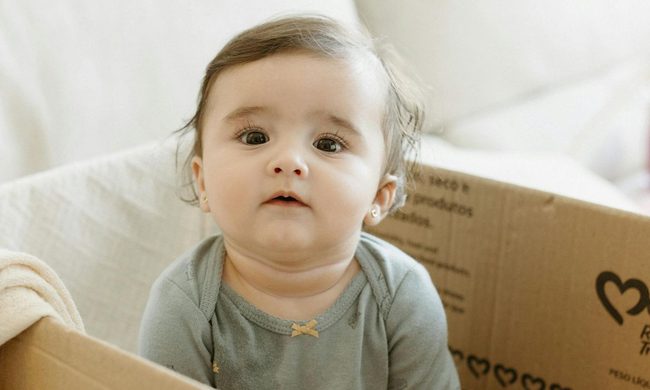Can you overfeed a baby? It’s a question that a lot of new parents ask themselves, since babies can’t always regulate their food intake during mealtime.
Overfeeding an infant isn’t common, but there are a few things to watch out for when feeding your baby.

How much do babies typically eat?
For a newborn, mealtime should take place every two to three hours. It’s not uncommon for newborns to eat eight to 12 times a day because they might not be able to drink more than half an ounce during a feeding. Frequent feedings help your baby grow and will stimulate milk production if you’re breastfeeding.
A good rule of thumb is to assume your baby is getting an additional ounce of milk per feeding for each month of age. A 2-month-old baby should drink 4 to 5 ounces every three to four hours, while a 6-month-old should drink 8 ounces every four to five hours.
As you introduce solid foods, you will need to find a balance between different foods and smaller quantities of milk.
How to know if your baby is getting enough to eat
It can be hard to assess how much milk your baby drinks during mealtime, especially if you’re breastfeeding. Pay attention to satiety cues from your baby:
- A newborn with a full stomach will be content, happy, and relaxed.
- It’s common for babies to fall asleep once they’re full.
- After feeding baby, you’ll notice their hands open and relax.
- Other common signs include releasing from the bottle or breast and turning away from it.
Consider adopting on-demand feeding. It’s a great way of making sure that your newborn is getting enough food and doesn’t fuss because of hunger. Feeding on-demand can help your baby develop early communication skills. After a few weeks, you’ll find a natural schedule that works for your baby’s needs.
The key to adopting a feeding on-demand schedule is to learn to recognize hunger cues from your baby:
- Closing fists
- Moving fists to mouth
- Sucking on fists
- Lip movements
- Looking for breasts
- Being fussy or restless
- Crying
Note that babies typically display other hunger cues before crying, and that fussiness can have other causes. Babies will also open and close fists and touch their mouth to explore things and not because they’re hungry.
Common signs your baby is eating too much
Overfeeding doesn’t happen very often, but it can be hard for babies to stop eating when they’re full. You should watch out when feeding baby with a bottle because it’s not easy to control the flow, and your baby can get more milk easily.
Here are some common signs of overfeeding:
- Excessive and rapid weight gain
- Frequent diaper changes
- Frequent bowel movements with a strong smell and liquid consistency
- Belching and flatulence
- Irritability and fussiness
- Trouble sleeping at night
How to avoid overfeeding
Always feed the recommended amount of formula for your baby’s age. If you’re unsure of how much your baby is eating when you breastfeed, your best option is to meet with a lactation consultant.
Don’t offer a bottle or breastfeed every time the baby cries. Look for other potential causes, like your baby feeling hot or uncomfortable, or even a full diaper. Pay attention to other hunger cues, as well.
Infants will often close their fists, become restless, or suck on their hands because they’re excited about something or want to explore their surroundings.
Pay attention to cues from your child. They will turn away from the bottle or breast when they’re full and lose interest. You can also take a few breaks during mealtime to give your baby more time to give you cues that they’re full.
You should wait until your baby is 4 to 6 months of age before introducing solid foods. Introducing solid foods too early or offering large quantities of solid foods can result in overfeeding and weight gain due to the nutrient-rich nature of solid foods. Check with your pediatrician before you introduce solid foods.
Adopting a regular sleep schedule can be challenging, but making sure your baby gets plenty of sleep will prevent hormonal disturbances that can increase appetite and help you adopt a more natural feeding schedule.
Lastly, don’t force your baby to eat if they won’t latch on. Infants have a sucking reflex and will drink if you push a bottle or nipple into their mouth even if they’re not hungry.

Final thoughts
Even though overfeeding isn’t a common issue, it’s normal for new parents to worry about whether or not their newborn is eating as much as they should.
Watch out for common signs of overfeeding, pay attention to hunger and satiety cues from your baby, and bring up feeding with your pediatrician if you have concerns about your child’s weight or eating habits.



